BMW 7 Series VS Renault Espace – Specs, Efficiency & Price Comparison
Which model is the better choice – the BMW 7 Series or the Renault Espace? We compare performance (571 HP vs 200 HP), boot capacity (540 L vs 692 L), efficiency (1 L vs 4.90 L), and of course, the price (101300 £ vs 37500 £).
Find out now which car fits your needs better!
The BMW 7 Series (Sedan) is powered by a Plugin Hybrid or Diesel MHEV engine and comes with a Automatic transmission. In comparison, the Renault Espace (SUV) features a Full Hybrid engine and a Automatic gearbox.
When it comes to boot capacity, the BMW 7 Series offers 540 L, while the Renault Espace provides 692 L – depending on what matters most to you. If you’re looking for more power, you’ll need to decide whether the 571 HP of the BMW 7 Series or the 200 HP of the Renault Espace suits your needs better.
There are also differences in efficiency: 1 L vs 4.90 L. In terms of price, the BMW 7 Series starts at 101300 £, while the Renault Espace is available from 37500 £.
Compare all the key specs now and find out which model fits your lifestyle best!
BMW 7 Series
The BMW 7 Series represents the pinnacle of luxury and performance in the executive car segment, offering an unparalleled driving experience. Its elegant design combines aesthetic appeal with advanced technology, ensuring both comfort and connectivity for its passengers. With cutting-edge driver assistance systems, this flagship model showcases the brand's commitment to innovation and safety.
details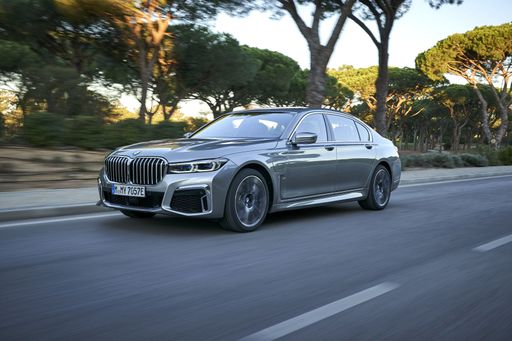 @ press.bmwgroup.com
@ press.bmwgroup.com
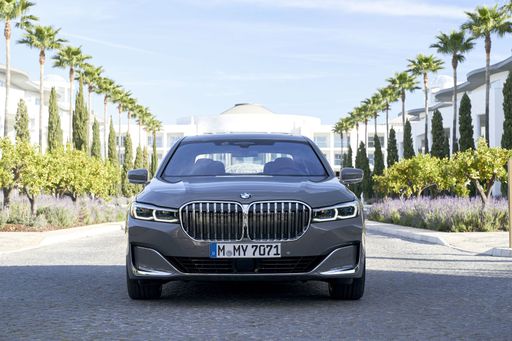 @ press.bmwgroup.com
@ press.bmwgroup.com
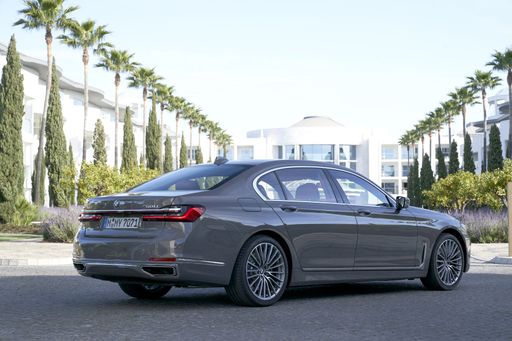 @ press.bmwgroup.com
@ press.bmwgroup.com
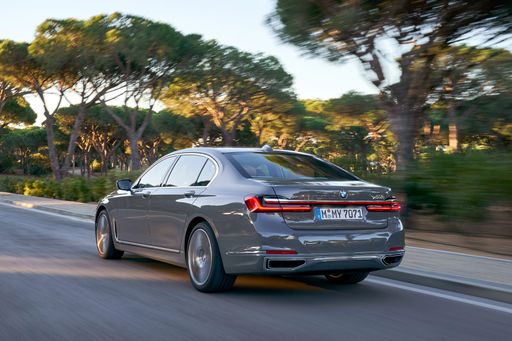 @ press.bmwgroup.com
@ press.bmwgroup.com
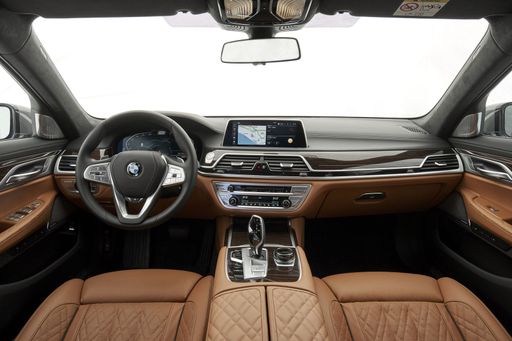 @ press.bmwgroup.com
@ press.bmwgroup.com
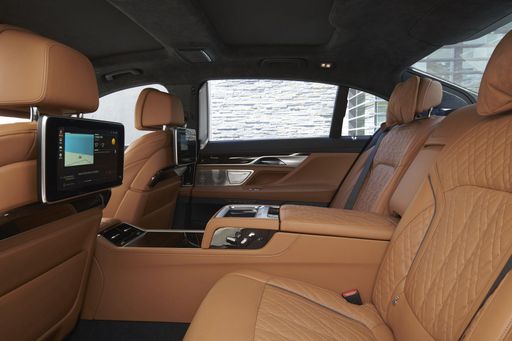 @ press.bmwgroup.com
@ press.bmwgroup.com
Renault Espace
The Renault Espace is a testament to innovative design, combining versatility with comfort to offer a unique driving experience. Its sleek exterior is complemented by a spacious interior, designed to cater to the needs of families and adventurers alike. With advanced technology and a focus on safety, the Espace seamlessly blends practicality with modern sophistication, making it a standout choice in the MPV segment.
details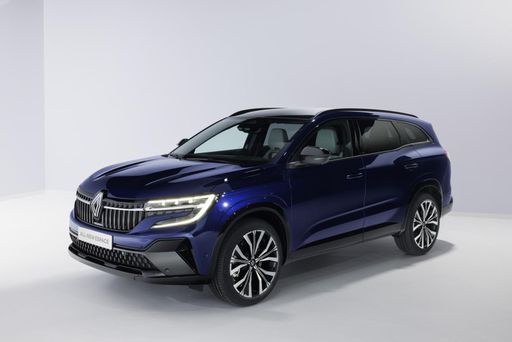 @ Renault
@ Renault
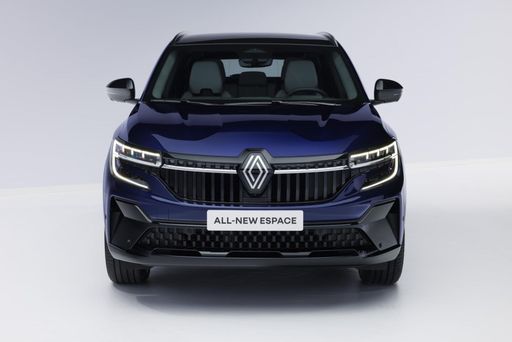 @ Renault
@ Renault
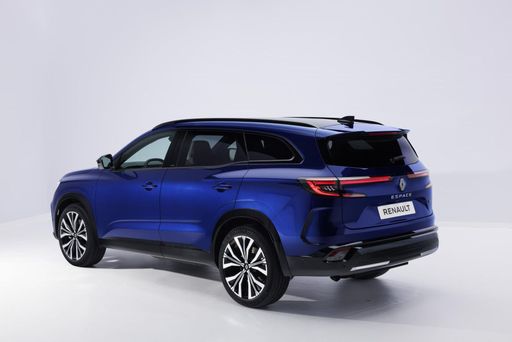 @ Renault
@ Renault
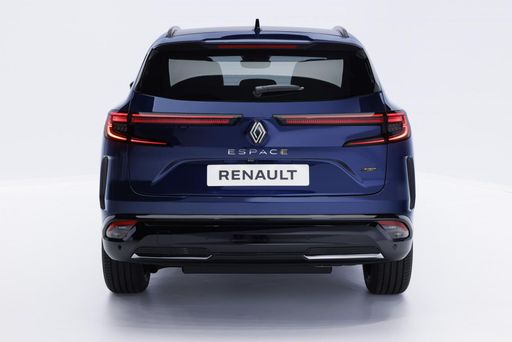 @ Renault
@ Renault
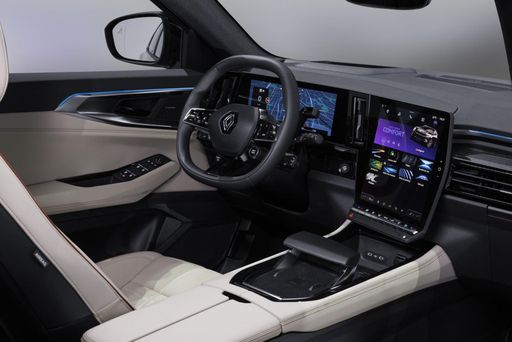 @ Renault
@ Renault

|

|
|
|
|
Costs and Consumption |
|
|---|---|
|
Price
101300 - 127300 £
|
Price
37500 - 41400 £
|
|
Consumption L/100km
1 - 6.1 L
|
Consumption L/100km
4.90 L
|
|
Consumption kWh/100km
-
|
Consumption kWh/100km
-
|
|
Electric Range
80 km
|
Electric Range
-
|
|
Battery Capacity
17.60 kWh
|
Battery Capacity
-
|
|
co2
23 - 160 g/km
|
co2
110 g/km
|
|
Fuel tank capacity
65 - 74 L
|
Fuel tank capacity
55 L
|
Dimensions and Body |
|
|---|---|
|
Body Type
Sedan
|
Body Type
SUV
|
|
Seats
5
|
Seats
5 - 7
|
|
Doors
4
|
Doors
5
|
|
Curb weight
2255 - 2525 kg
|
Curb weight
1673 - 1783 kg
|
|
Trunk capacity
525 - 540 L
|
Trunk capacity
212 - 692 L
|
|
Length
5391 mm
|
Length
4746 mm
|
|
Width
1950 mm
|
Width
1830 mm
|
|
Height
1544 mm
|
Height
1645 mm
|
|
Payload
605 - 665 kg
|
Payload
404 - 581 kg
|
Engine and Performance |
|
|---|---|
|
Engine Type
Plugin Hybrid, Diesel MHEV
|
Engine Type
Full Hybrid
|
|
Transmission
Automatic
|
Transmission
Automatic
|
|
Transmission Detail
Automatikgetriebe
|
Transmission Detail
Automatikgetriebe
|
|
Drive Type
All-Wheel Drive
|
Drive Type
Front-Wheel Drive
|
|
Power HP
300 - 571 HP
|
Power HP
200 HP
|
|
Acceleration 0-100km/h
4.3 - 5.8 s
|
Acceleration 0-100km/h
8.80 s
|
|
Max Speed
250 km/h
|
Max Speed
174 km/h
|
|
Torque
670 - 800 Nm
|
Torque
-
|
|
Number of Cylinders
6
|
Number of Cylinders
3
|
|
Power kW
220 - 420 kW
|
Power kW
147 kW
|
|
Engine capacity
2993 - 2998 cm3
|
Engine capacity
1199 cm3
|
General |
|
|---|---|
|
Model Year
2023 - 2024
|
Model Year
2025
|
|
CO2 Efficiency Class
B, F
|
CO2 Efficiency Class
C
|
|
Brand
BMW
|
Brand
Renault
|
BMW 7 Series
Introduction to the BMW 7 Series
The BMW 7 Series has long been synonymous with luxury, performance, and cutting-edge technology. The latest versions continue this tradition, integrating sophisticated hybrid technology with distinguished design and powerful performance. Whether cruising the motorway or navigating urban landscapes, the BMW 7 Series offers an exceptional driving experience.
Technical Specifications
The 2023 BMW 7 Series boasts a range of impressive specifications and features. The engine options, which include both diesel mild-hybrid and plug-in hybrid variants, provide flexibility for different driving needs. With power outputs ranging from 300 PS to a remarkable 571 PS, the 7 Series does not compromise on performance. Coupled with intelligent all-wheel drive and an automatic transmission, it assures smooth and responsive handling.
Fuel efficiency is another highlight, with the series achieving consumption figures as low as 1.1 L/100km for the plug-in hybrid models, showcasing the brand's commitment to sustainability without sacrificing performance.
Advanced Hybrid Technology
The integration of mild-hybrid and plug-in hybrid systems into the 7 Series marks a significant advancement in BMW's pursuit of greener motoring. The plug-in hybrid variants, with a battery capacity of 18.7 kWh, offer an all-electric range of up to 79 km - ideal for city driving. This hybrid setup not only reduces emissions but also enhances acceleration, delivering a swift 0-100 km/h time ranging from 4.3 to 5.8 seconds.
Luxury and Comfort
The BMW 7 Series epitomises luxury, featuring an interior designed for comfort and convenience. Standard equipment includes high-grade materials, advanced connectivity, and cutting-edge infotainment systems. The cabin is spacious, with ample room for five passengers and a generous boot capacity of up to 540 litres, ensuring that long journeys are as comfortable as they are efficient.
Safety and Innovation
Safety remains paramount in the BMW 7 Series, with an array of features designed to protect occupants and enhance driving confidence. This includes state-of-the-art driver assistance systems, which provide support in various driving conditions, thus ensuring a safer driving experience.
In conclusion, the BMW 7 Series stands as a testament to automotive innovation, blending traditional luxury with modern efficiency and performance. It's a fine choice for those who seek the pinnacle of automotive engineering and technology.
Renault Espace
A New Era for the Renault Espace
The Renault Espace, a staple in the automotive industry, has evolved to embrace a bold new direction with its latest iteration. With its transition into a sleek and stylish SUV, the Espace continues to offer the versatility and innovation that customers expect from the renowned French automaker. This article delves into the advanced technical details and groundbreaking innovations of the current Renault Espace model.
Powertrain Engineering: Full Hybrid Brilliance
The core of the latest Renault Espace is its sophisticated E-Tech Full Hybrid technology. At the heart of this system lies a dynamic three-cylinder engine paired with electric motor support, generating a robust 200 PS. This ensures that drivers experience both power and efficiency in their journeys. The hybrid engine achieves remarkable fuel economy, consuming just 4.7 L/100km, and demonstrates Renault’s commitment to environmental responsibility with a CO2 output of just 107 g/km, earning it a classification of CO2 efficiency class C.
Design and Dimensions: Spacious Comfort in an SUV Shell
Renault’s transformation of the Espace into an SUV doesn’t compromise on its title hinting towards ample interior space. With seating configurations for either five or seven passengers, the Espace adapts to diverse family needs. The SUV's dimensions—4,722 mm in length, 1,843 mm in width, and 1,645 mm in height—ensure that it stands out both aesthetically and functionally on the road.
The generous boot capacity ranges from 159 to 581 litres, allowing it to accommodate everything from daily groceries to larger travel luggage with ease. The five-door design further enhances its practicality, making the loading and unloading process a breeze.
Performance and Drivability: A Smooth Journey
The Renault Espace offers impressive performance metrics, accelerating from 0-100 km/h in a commendable 8.8 seconds. Despite its size, the Espace maintains a commendable top speed of 174 km/h, ensuring that it is as capable on highways as it is in an urban environment. The front-wheel drive system, paired with an automatic gearbox, provides a seamless driving experience—ideal for both city commutes and longer road trips.
Interior Comfort and Technology: A Hub of Innovation
Renault’s focus on creating a comfortable and technologically advanced cabin is evident in the Espace. The choice of various trims—Esprit Alpine Multi-Mode Automatik and Iconic Multi-Mode Automatik—offers luxury and personalisation. Modern technology is integrated throughout the vehicle, with intuitive infotainment options that keep all passengers connected and entertained.
Value for Money: A Competitive Edge
The Renault Espace positions itself competitively in the market with its starting price range from €43,800 to €48,300. Such pricing reflects its status as a premium vehicle that offers cutting-edge hybrid technology, elegant design, and versatile functionality.
With its blend of performance, technology, and space, the Renault Espace remains an outstanding option for families and individuals alike, looking to embrace innovative motoring in the SUV segment.
The prices and data displayed are estimates based on German list prices and may vary by country. This information is not legally binding.
